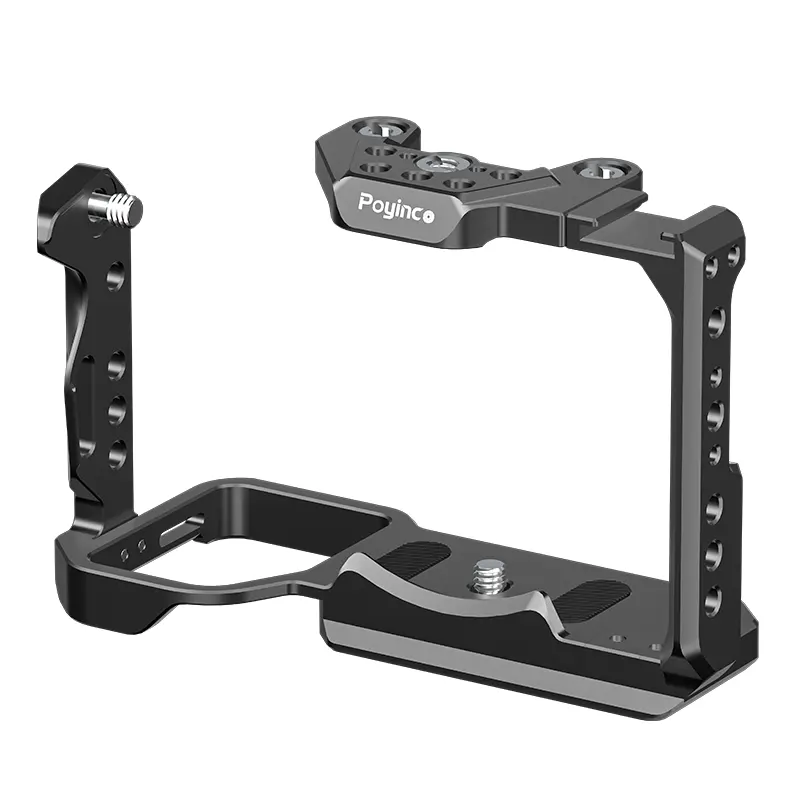

Time:2025-02-13 Views:1

Scientific instruments often require high precision components, and CNC programming is used to manufacture them. In the field of microscopy, the components of microscopes, such as the objective lenses, stage mechanisms, and focus adjustment components, are made with CNC technology. The precise machining ensures that the microscope can achieve high resolution imaging. In the field of analytical chemistry, components for instruments like mass spectrometers and gas chromatographs are produced using CNC programming. These components need to have tight tolerances to ensure accurate analysis of samples.
The Applications of CNC Machining Technology
CNC machining technology has transformed the manufacturing landscape by offering a high precision, efficient, and flexible manufacturing solution. It has found applications in numerous industries, enabling the production of complex and high quality products.
Aerospace Manufacturing
In the aerospace industry, CNC machining technology is essential for the production of critical components. Aircraft engines are some of the most complex and high performance machines, and CNC machined parts are used throughout the engine. Compressor blades, which are responsible for compressing the air entering the engine, are made with extreme precision. The complex airfoil shapes of these blades are carefully crafted using CNC machining to optimize the engine's performance. Turbine disks, which are subjected to high temperatures and rotational forces, are also machined using CNC technology. The precise control of the machining process ensures that the disks have the necessary strength and dimensional accuracy. In addition to engine components, aircraft structural parts, such as wing spars and fuselage frames, are produced using CNC machining. These parts need to be lightweight yet strong to ensure the safety and efficiency of the aircraft, and CNC machining allows for the creation of parts with the required properties.
Automotive Production
The automotive industry has embraced CNC machining technology for the production of a wide range of components. Engine blocks, which are the core of an engine, are machined using CNC machines. The complex internal passages for coolant and oil, as well as the cylinder bores, are precisely created to ensure proper engine operation. Transmission components, such as gears, shafts, and transmission housings, are also manufactured with CNC technology. The precise tooth profiles of gears and the accurate fit of shafts and housings are crucial for smooth power transfer and the overall performance of the transmission system. In addition, automotive body parts, such as door panels and hoods, can be produced using CNC controlled stamping and forming processes. These processes ensure that the body parts have the correct shape and fit, contributing to the overall aesthetics and functionality of the vehicle.
Medical Device Manufacturing
CNC machining technology plays a vital role in the production of medical devices. Surgical instruments, such as scalpels, forceps, and drills, are made with high precision using CNC machines. The sharp edges of scalpels and the delicate jaws of forceps are carefully crafted to ensure optimal performance during surgical procedures. Implantable devices, like hip and knee replacements, are custom designed and manufactured using CNC machining. These implants need to be biocompatible and have precise shapes to fit the patient's anatomy. CNC machining allows for the creation of personalized implants that can provide better long term functionality and patient comfort. Dental prosthetics, such as crowns and bridges, are also produced using CNC technology, ensuring a perfect fit for the patient's teeth.
Electronics Manufacturing
In the electronics industry, CNC machining technology is used in the production of printed circuit boards (PCBs) and electronic enclosures. For PCBs, CNC machines are used to mill and drill holes for components, create precise traces, and cut the board to the required shape. The high precision of CNC machining ensures that the PCBs have reliable connections and can function properly. Electronic enclosures, which protect the sensitive internal components of electronic devices, are also machined using CNC technology. The tight tolerances achieved by CNC machining ensure a perfect fit for the components and provide proper ventilation and protection from external elements. In addition, CNC machined components are used in the production of semiconductor manufacturing equipment, such as wafer handling robots and lithography tools, which are essential for the production of integrated circuits.
Defense and Military Applications
The defense and military industries rely on CNC machining technology for the production of a wide range of equipment. Weapon systems, such as firearms, artillery, and missiles, are made with high precision CNC machined components. The barrels of firearms and artillery pieces are precisely machined to ensure accurate firing and long term reliability. Missile components, such as the guidance systems and propulsion units, are also produced using CNC technology. The precise control of the machining process ensures that these components can function properly in the harsh environments of military operations. In addition, military vehicles, such as tanks and armored personnel carriers, are made with CNC machined parts. The chassis, engine components, and armor plates are all produced using CNC machining to ensure the strength and performance of the vehicles.
Read recommendations: